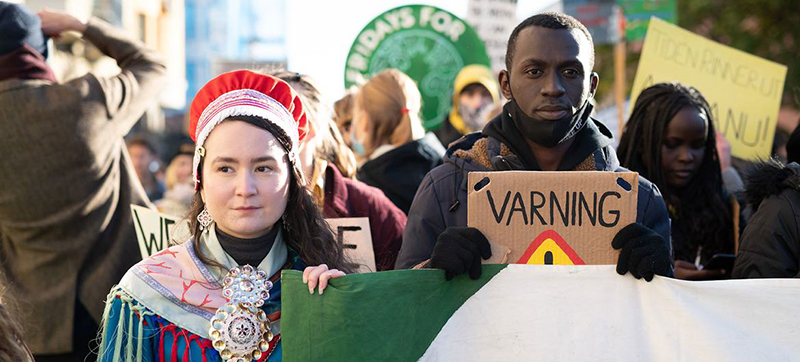 Planet Risk
Planet Risk
Do more for environment or risk planet becoming ‘human sacrifice zone’: UN experts
New York: It’s been five decades since Sweden hosted the world’s first conference to make the environment a major issue, in recognition of the “human sacrifice zone” it could become if we fail to look after it, according to rights experts. On Monday, ahead of fresh discussions in Stockholm this week to discuss further action, the experts warned that much greater efforts are needed which could save millions of lives every year.
Leading the call for countries to implement constitutional change and strong environmental laws to bring about positive change, UN-appointed independent rights expert David Boyd said that all such discussions should stem from the recognition of everyone’s right to a healthy environment.
Rights inspiration
Echoing that call, Marcos Orellana, UN Special Rapporteur on toxics and human rights, also said that we should not forget how human rights inspired key elements of the original 1972 Stockholm Declaration.
“This is a key moment for international environmental law to change direction and embrace a human rights-based approach to environmental protection,” he added.
Multiple benefits
The experts insisted that “putting human rights at the centre of environmental action will have positive implications for air quality, clean water, healthy soil and sustainably produced food”.
A rights-based approach would also help “green energy, climate change, biodiversity and the elimination of toxic substances and (the) protection of indigenous people’s rights”, they added.
Standing in the way of progress on environmental action are multiple challenges, including climate shocks, biodiversity loss and pollution – all of which impact on the enjoyment of human rights, the experts maintained.
Date to remember
In October 2021, in a landmark resolution, the Human Rights Council in Geneva recognised for the first time the human right to a clean, healthy and sustainable environment.
The resolution marked the culmination of decades of efforts by civil society organisations, including youth groups, national human rights institutions and indigenous peoples.
Kaye and Orellana, together with fellow Special Rapporteurs Francisco Calí Tzay and Ian Fry - encouraged States to encourage the UN General Assembly to consider recognizing the right to a clean, healthy and sustainable environment at its earliest convenience, just as the UN Human Rights Council had done.
General Assembly call
“A General Assembly resolution on the right to a healthy environment would reinforce the urgency of actions to implement the right,” they said in a statement, adding: “We are all extraordinarily fortunate to live on this miraculous planet, and we must use the right to a healthy environment to ensure governments, businesses and people do a better job of taking care of the home that we all share.”
Special Rapporteurs and independent experts are appointed by the Human Rights Council to examine and report back on a specific human rights theme or a country situation. They are independent from any government and are not paid for their work.
Support Our Journalism
We cannot do without you.. your contribution supports unbiased journalism
IBNS is not driven by any ism- not wokeism, not racism, not skewed secularism, not hyper right-wing or left liberal ideals, nor by any hardline religious beliefs or hyper nationalism. We want to serve you good old objective news, as they are. We do not judge or preach. We let people decide for themselves. We only try to present factual and well-sourced news.







